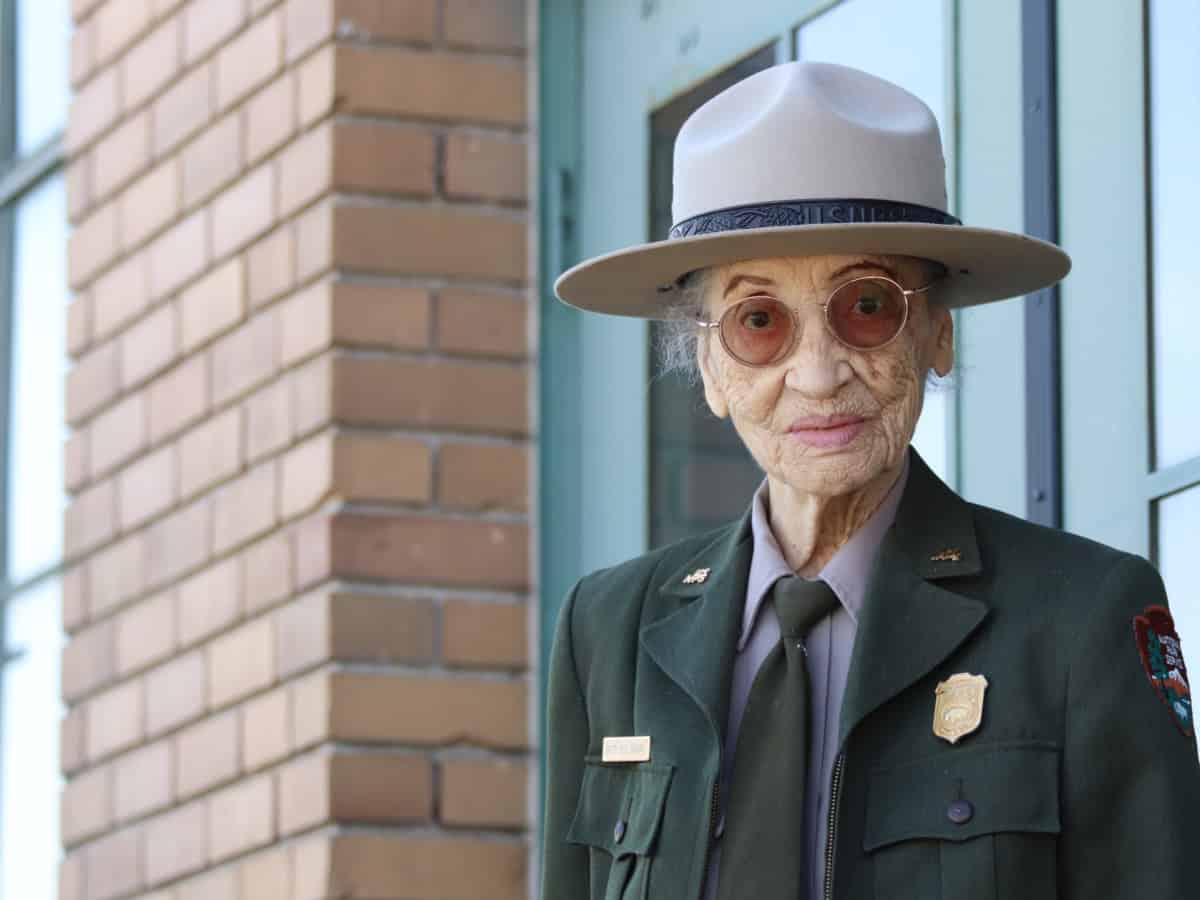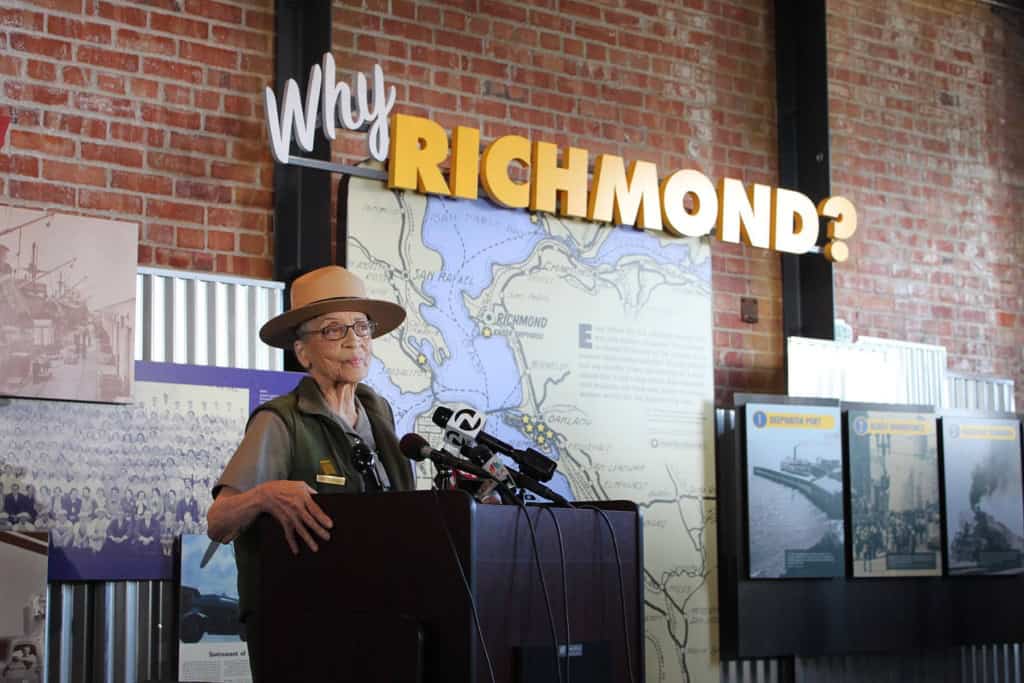
A Life of Resilience and Purpose
By Alma Busby-Williams, Director of Inclusion and Community Partnerships
As we celebrate the final days of Black History Month, I want to share the story of someone who has deeply inspired me—Betty Reid Soskin. Her lifelong advocacy, activism, and service in our national parks have touched countless lives.
Born in 1921 in Detroit, Betty spent her early childhood in New Orleans until a hurricane and flood destroyed her family’s home and business in 1927. Her family then relocated to Oakland, California, where she grew up.
In the 1960s, Betty became a songwriter for the Civil Rights Movement. She later served as a field representative for California State Assemblywomen Dion Aroner and Loni Hancock, where she played a key role in planning a park to honor the contributions of women during World War II. As a result of those efforts, Rosie the Riveter/World War II Home Front National Historical Park was established in Richmond, California, in 2000.
While involved in the park’s creation, Betty shared firsthand knowledge of the conditions African American women faced in the segregated workforce. She often remarked that what gets remembered depends on who is in the room doing the remembering.
A Trailblazing Park Ranger
In 2003, Betty left her state job to consult on the park she helped create. In 2007, at age 85, she became a park ranger with the National Park Service, leading tours and sharing the park’s history with visitors.

Even after suffering a stroke in 2019, Betty returned in 2020 in a limited role. On March 31, 2022, at the age of 100, she retired as the oldest-serving park ranger in the country.
Her Legacy and Impact on Me
As a young person growing up in the Bay Area, graduating from high school in Oakland, and later raising my children in Walnut Creek, I felt an immense sense of pride learning about Ranger Betty.
I had never known about her early advocacy work, but I was inspired by how it shaped her later role in ensuring so many important stories were told. She illustrated why it’s not just essential to be in the room where decisions are made—but to use our voices to represent those who haven’t yet been invited in.
photos courtesy of NPS


Love it, inspiring. “I’ve been so many things”, “be ready for what comes next”, “not defined by someone else”. Great takeaways. Shared with my daughter. thanks for posting